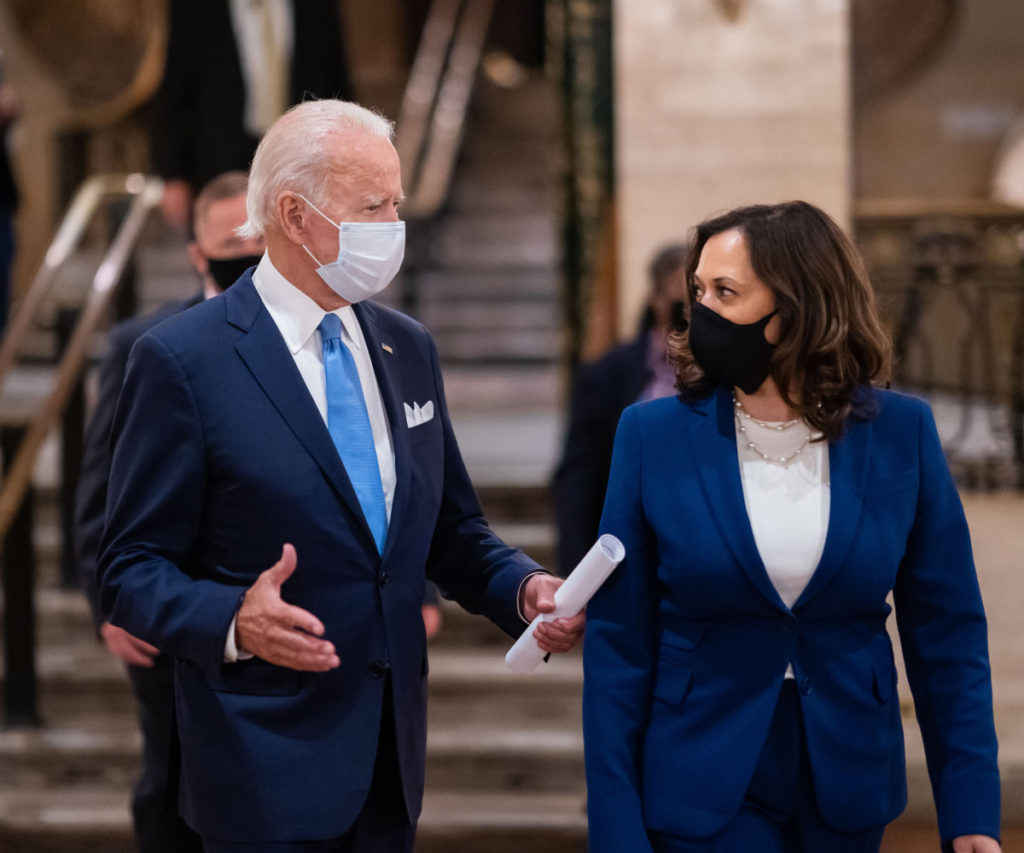Photo Credit: The White House
In its first month in office, the Biden-Harris administration has taken executive actions to advance racial equity signaling a welcome shift from the Trump administration, which rejected equity and justice as core values. The previous administration spent much of the last four years rolling back protections and advancing racist policies targeting Black, Latinx, Indigenous, Asian American Pacific Islander, and immigrant communities (attempting, among other things, to ban racial equity trainings in the federal government). In reference to his move toward embedding racial equity into his policy plans, President Biden has said, “Advancing equity, civil rights, racial justice, and equal opportunity is the responsibility of the whole of our government.” He elaborated, “We need to make equity and justice part of what we do every day.” The Biden-Harris administration’s focus on racial equity can be seen in wide-ranging recent actions from engagement with Tribal governments to environmental justice to fair housing and immigration.
Working with Tribal Governments. President Biden announced a commitment to honor Tribal sovereignty and consult with tribes on policies that affect them, an improvement from the erasure of and disregard for Indigenous communities throughout history, including under the previous administration. Biden has already taken steps to fulfill this promise by canceling the Keystone XL pipeline, a longstanding demand of an Indigenous-led movement because of the harmful environmental impacts the pipeline would have on various Tribal lands and the climate.
Environmental justice. The climate crisis, another critical focus for the administration, has strong implications for protecting the health and well-being of children and families now and for generations to come. Biden’s Executive Order on climate policy calls on agencies to create programs and policies that ensure environmental justice for communities that have been historically overburdened by pollution and experienced disinvestment in housing, transportation, and water. The order also establishes an Interagency Council tasked with developing a strategy to address current and historic environmental injustice. This order is important given that pollution and environmental toxins have been systemically concentrated in communities with low incomes, and Black communities in particular, and have long-term, detrimental impacts on children’s healthy development.
Fair housing. The administration announced an order to examine federal housing discrimination, explicitly recognizing the harm that racist housing policies have caused Black, Latinx, Native, and communities with low incomes through discrimination in housing access, inadequate housing and neighborhood choices, and the disproportionate burden of pollution in their communities. We know that housing discrimination produces residential segregation which reduces access to safe housing, employment, and education opportunities, and reliable transportation and food options that are all critical to supporting families.
Immigration. Biden’s early actions on immigration are another sign of his commitment to advancing racial equity. Immediate actions have begun to undo the harmful policies that were already in place like reversing the Muslim ban, committing to counting undocumented people in the census, and reaffirming DACA. Biden has also ordered agencies to evaluate the impacts of the public charge rule on the immigration system and public health more generally. Additionally, the administration has made efforts at the US/ Mexico border by rescinding the zero tolerance immigration rule that fueled family separation and creating a task force to reunite families who were already separated.
These are all important first steps toward advancing racial equity, but additional actions will be necessary to roll back racist policies initiated by the Trump administration and dismantle the systemic racism that has plagued public policy throughout U.S. history. For example, the federal government must not only recognize Tribal sovereignty, but fully uphold its trust and treaty obligations, including fully funding housing, health, and education services. The administration must do more than examine housing discrimination, but guarantee housing that is affordable, environmentally healthy and safe for all children and families. Families who have been separated through the immigration system must be granted resources like health care and income supports to help them meet their basic needs. The administration needs to not only evaluate but overturn the Trump-era public charge rule, which creates a climate of fear for families who need to access public services. In order to ensure the safety and well-being of all children and families, the Biden administration should move quickly to decriminalize immigration and grant permanent legal status with a path to citizenship for every immigrant.
Further, there is much deeper work to do to reckon with our country’s history of White supremacy and how it is currently upheld and perpetuated by public policy and systems. To truly advance racial equity and create public systems that meet the needs of all children, youth, and families, the administration must promote and support policies that address the root causes of existing racial inequities and make long-term investments that support families and communities.
